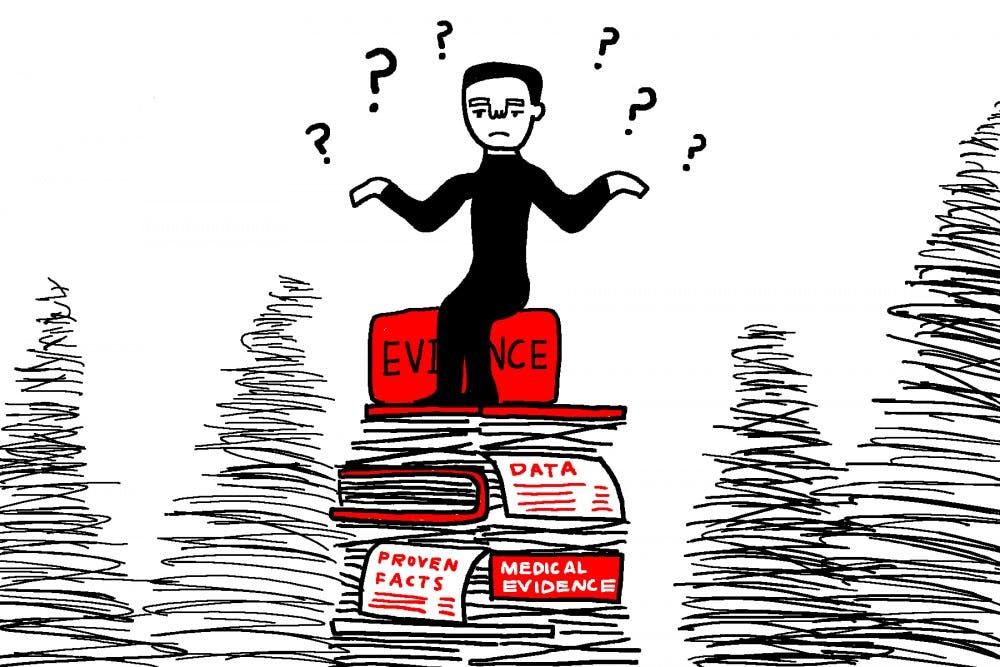Vaccines have revolutionized the ever-changing field of public health. They have successfully transformed the landscape of modern medicine and have contributed to the eradication of smallpox and polio, saving more than 5 million lives a year.
Thanks to the research done on vaccines, humans have become resistant to some of the deadliest diseases in the world, and the average life expectancy has been raised by more than 30 years in the past century.
ASU is one of many institutions that develops methods for creating and implementing vaccines. This effort is led by ASU researchers in the fields of immunology and organic and DNA structural chemistry. Their contributions, among many others, to the world of science have aided in the development of vaccines against any target of interest, infectious agents or tumor antigens.
Yet, there are some individuals that question the integrity of vaccines and the potential effects they could have on children.
In 1998, a deceitful medical study was published in the British medical journal The Lancet, detailing a so-called “link” between the Measles, Mumps and Rubella (MMR) vaccine and Autism. The study has since been deemed fraudulent.
However, despite the researcher and the study’s loss of scientific credibility, some parents still believe that the connection exists.
These parents feel certain that vaccines can lead to autism and subsequently, the anti-vaccination movement has gained ascendancy in the U.S. government, as our current president has given credence to the views on vaccines and their relationship with autism.
Healthy young child goes to doctor, gets pumped with massive shot of many vaccines, doesn't feel good and changes - AUTISM. Many such cases!
— Donald J. Trump (@realDonaldTrump) March 28, 2014
The myth that vaccines like MMR cause autism has contributed to outbreaks of measles, such as the one at Disneyland in Southern California that caused dozens of cases to spread across California and Arizona.
Measles is one of the most contagious and lethal diseases that is known to affect humans. A single affected person can infect more than a dozen unvaccinated people.
With more and more people believing in the myth that vaccines cause autism, society could see a steep rise in the cases of measles present in children.
Angela Mick, a professor of biology at Glendale Community College, believes that measles pose a real threat to all children, especially those that are unvaccinated.
"Vaccinating your child is the easiest and safest way to prevent them from developing these life-threatening diseases, and not doing so not only puts your child at risk, but others as well," Mick said.
An infectious disease that was believed to be forever in the country’s rear-view mirror has made a devastating comeback thanks to the ignorance surrounding vaccines.
The American Academy of Pediatrics produced a 21-page document listing all the studies clearly showing there is no link between vaccines and autism.
Recent studies done by scientists, including some at ASU, have shown that there is compelling evidence that genetics play the largest role in the development of autism. Exposure to certain chemicals in the environment or infections during pregnancy could also be involved.
This evidence is what we need to focus on, not the myth that vaccines cause autism. Perpetuating these phony theories about vaccines and autism will negatively impact society as a whole and will have devastating effects on the younger generation.
By feeding into this myth, parents prove that they are more afraid of autism than the potential for their children to contract a highly contagious and deadly disease.
This argument further divides society's warped view on disabilities. People believe that their children developing autism is worse than being diagnosed with measles, mumps or rubella.
The poorly thought out rationale surrounding the idea that vaccines cause autism is harmful and represents a backwards ideology.
Simply put, vaccines save lives, and ignoring scientific fact because you don’t “believe” in it puts not only your child at risk, but thousands of other people too.
One of ASU's missions is to continue doing innovative research on immunotherapy, vaccines and virotherapy and edcuate others on the importance of vaccines.
Reach the columnist at ymian@asu.edu or follow @yasminemian on Twitter.
Editor’s note: The opinions presented in this column are the author’s and do not imply any endorsement from The State Press or its editors.
Want to join the conversation? Send an email to opiniondesk.statepress@gmail.com. Keep letters under 500 words and be sure to include your university affiliation. Anonymity will not be granted.
Like The State Press on Facebook and follow @statepress on Twitter.




